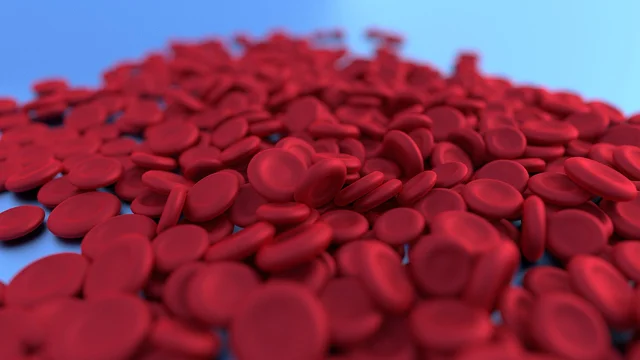Understanding anemia: Treatments and Natural Remedies
Anemia refers to a condition in which the body has less red blood cells than usual. The oxygen carried to the various parts of your body by red blood cells is called anemia. Anemia can cause a variety of health problems and symptoms. Anemia can affect anyone, regardless of age, though it's more common among older people, women and children. Anemia affects approximately 1.62 billion people around the world.

Anemia: What does it mean?
Anemia can be caused by many factors including chronic conditions, low iron, Medications , hereditary disorders and Infections . Anemia can also be caused by excess bleeding and inadequate iron intake. Anemia can affect the body in different ways depending on its severity. Anemia can cause fatigue, weakening, pallor, shortness or no breath, headaches and dizziness.
Common Anemia Causes
Anemia is most commonly caused by:
- Iron deficiency is a condition that results in the loss of red blood cells. Iron deficiency can be caused by too little iron.
- Vitamin B12 deficiency: Vitamin B12 is required to make red blood cells. Folic Acid and Vitamin B12 are also needed. Anemia can be caused by a deficiency of either vitamin B12 or folic acid.
- Some chronic conditions can cause red blood cell loss. Cancer and kidney disease are two examples.
- Anemia can be caused by genetic conditions: There are some genetic disorders like sickle cell and Thalassemia .
- Anemia can be caused by certain infections like HIV and Malaria .
- Anemia can be caused by certain medications such as chemotherapy.
There are several common treatments for anemia
Anemia treatment depends on its root cause. These are the most popular treatments:
- Iron supplements: Iron supplementation is often recommended to treat iron deficiency. Iron supplements may be used to increase the production of red blood cells and relieve symptoms.
- Vitamin supplements: Vitamin B12 or Folic acid are commonly prescribed for vitamin deficiency. Supplements can increase the production of red blood cells and help with symptoms.
- Transfusions of blood: In some instances, transfusions are necessary due to severe anemia or bleeding.
- Operation: It may be necessary for any tumors or blockages to be removed.
- Some medications may be prescribed for certain forms of anemia, including erythropoietin.
Considerations of Experts and Professions on Anemia
Both professionals and experts agree that it is important to treat anemia promptly and take the matter seriously. Anemia may be a sign of underlying conditions and should be treated promptly, according to American Society of Hematology. If anemia continues or gets worse, ASH suggests that you seek medical attention. Roberta Gebhard is a University of Rochester Medical Center hematologist who recommends that you get tested for anemia every other week. She says that it is important to be screened regularly for anemia in order to take preventative steps or to manage it when it occurs.
A few natural remedies and tips for anemia
Anemia can be treated with natural methods and other tips. A balanced diet rich in iron can increase the production of red blood cells. Iron-rich foods include red meats such as poultry, fish and legumes. Vitamin C can also help increase iron absorption. You can also avoid Alcohol , caffeine and exercise regularly.
If anemia symptoms persist or get worse, you should consult a doctor. A doctor will be able to help you determine the root cause of your anemia and provide a treatment plan.
Conclusion
Anemia refers to a condition in which the body has less red blood cells than usual. Anemia can be caused by many factors including anemia, low iron, certain medications, hereditary conditions, chronic diseases and infections. Anemia treatment depends on its underlying causes and can include iron supplements and vitamin supplements as well as blood transfusions and surgery. There are also natural ways to reduce anemia. If anemia symptoms persist, or get worse, it is important that you seek professional advice.
Anemia should not be ignored and must be treated immediately. Anemia management can be made easier by learning about the symptoms, the treatments and the natural remedies.